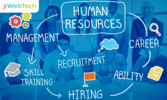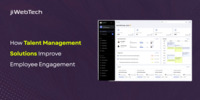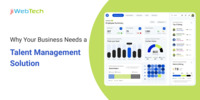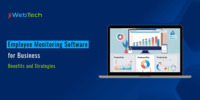- Jan 28, 2025
- Talent Management
- 2561
Share this post on:
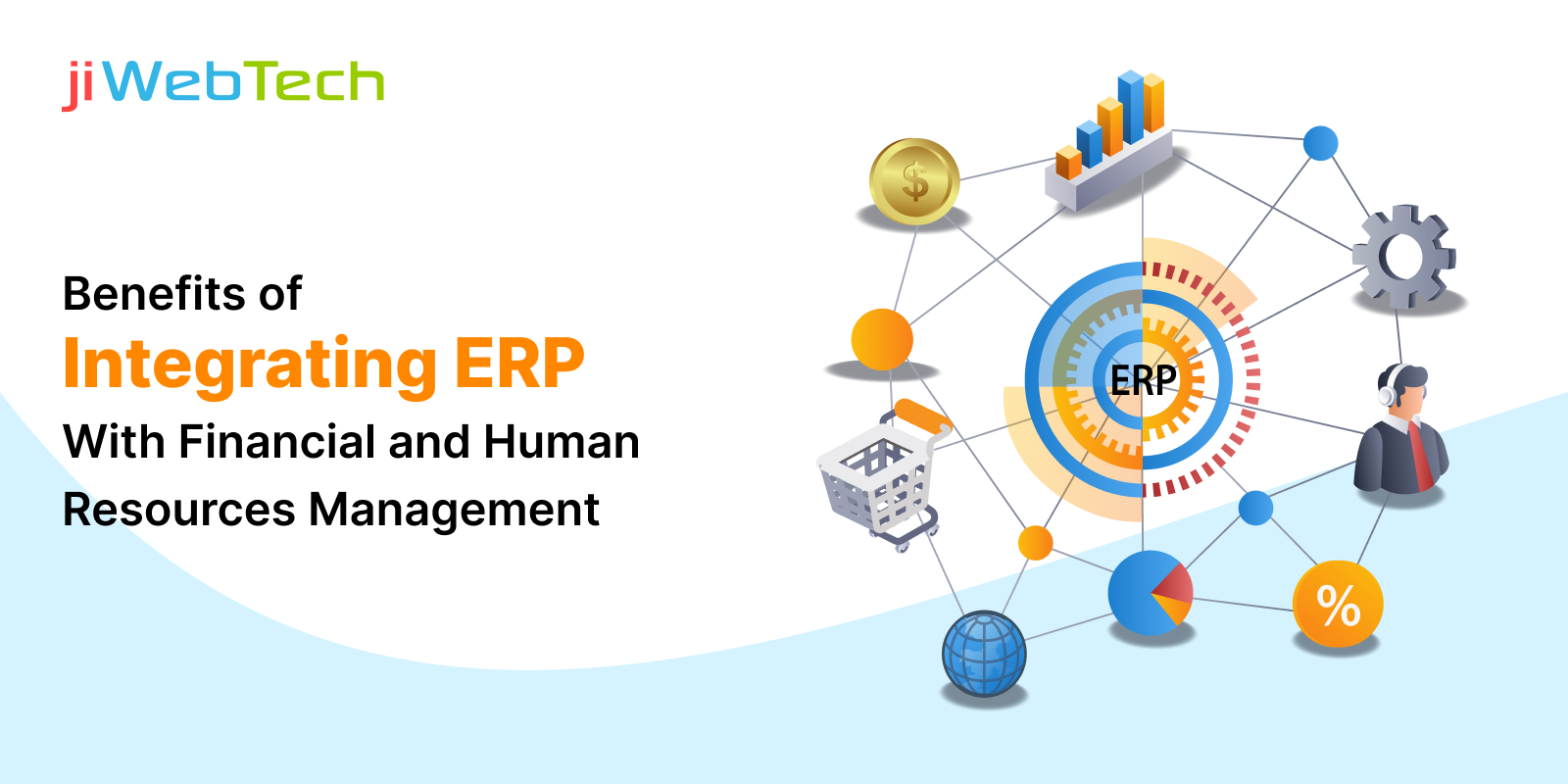
Enterprise Resource Planning (ERP) systems have emerged as a cornerstone of modern business management, enabling organizations to streamline operations, enhance productivity, and make informed decisions. By integrating ERP systems with Financial and Human Resources Management (HRM), businesses can achieve unparalleled efficiency, transparency, and agility. This integration empowers organizations to manage core processes with precision, making it a transformative step in optimizing performance and fostering growth.
Key Takeaways
- Enhanced Efficiency: ERP systems streamline HR and financial workflows, reducing manual tasks and errors.
- Data-Driven Decisions: Advanced analytics offer actionable insights for improving operations and employee management.
- Improved Employee Experience: Automation, transparency, and personalization boost engagement and satisfaction.
- Regulatory Compliance: ERP systems ensure adherence to labor laws and mitigate risks with automated updates.
Benefits of ERP for Financial Management
ERP systems revolutionize financial management by centralizing and automating critical processes such as financial transactions, budgeting, forecasting, and reporting. Real-time data accessibility ensures that stakeholders have up-to-date insights, enabling proactive decision-making.
Seamless Transactions: Automated recording and reconciliation eliminate manual errors and reduce processing times.
Improved Financial Planning: ERP’s advanced forecasting tools help in anticipating revenue streams and managing budgets effectively.
Enhanced Reporting: Comprehensive dashboards and analytics provide an accurate picture of financial health, facilitating strategic planning.
Streamlining HR Processes
The integration of ERP with HRM simplifies and automates complex human resource functions, creating a cohesive and efficient workflow.
Payroll Management: Automated payroll processing reduces errors, ensures timely payments, and handles tax deductions effortlessly.
Recruitment and Onboarding: ERP tools streamline hiring processes, track applicant data, and facilitate onboarding with ease.
Employee Records Management: Centralized storage of employee data ensures quick access and consistency across departments.
Benefits Administration: Efficiently manage employee benefits, ensuring compliance and employee satisfaction.
Enhanced Data Management and Analytics
ERP systems consolidate data from various departments into a unified platform, enabling organizations to harness the power of accurate and actionable insights.
Centralized Data Storage: A single source of truth ensures consistency and eliminates data silos.
Advanced Analytics: In-depth reporting tools allow for performance monitoring and predictive analysis.
Strategic Planning: Data-driven insights empower both HR and finance teams to make informed decisions aligned with organizational goals.
Improved Employee Experience
Integrating ERP with HRM significantly enhances the employee experience by simplifying access to information and streamlining HR processes.
Self-Service Tools: Employees can access their records, submit requests, and track approvals through user-friendly portals.
Streamlined Processes: From leave applications to expense claims, ERP systems reduce wait times and improve transparency.
Enhanced Communication: Centralized communication tools keep employees informed and engaged.
Regulatory Compliance and Risk Management
ERP systems play a crucial role in ensuring compliance with ever-evolving regulatory requirements, reducing the risk of legal and financial penalties.
Real-Time Updates: ERP systems stay updated with changes in tax laws, labor regulations, and other compliance requirements.
Audit Trails: Automated record-keeping ensures transparency and facilitates audits.
Risk Mitigation: Comprehensive monitoring tools identify and address potential risks proactively.
Cost Savings and ROI
The implementation of an ERP system translates into significant cost savings and a strong return on investment (ROI).
Reduced Manual Labor: Automation minimizes the need for repetitive tasks, saving time and resources.
Improved Efficiency: Streamlined processes reduce bottlenecks and improve overall productivity.
Minimized Errors: Accurate data management lowers the costs associated with errors and rework.
Future Trends in ERP for HRM
As technology evolves, ERP systems are integrating advanced features that further enhance their capabilities.
AI and Machine Learning: Predictive analytics and intelligent automation are reshaping ERP functionalities.
Cloud-Based Solutions: The shift to cloud platforms ensures scalability, flexibility, and remote accessibility.
Mobile Accessibility: Mobile-friendly ERP systems empower employees to access tools and information anytime, anywhere.
Integration with IoT: Connecting ERP systems with IoT devices enables real-time data collection and analysis.
Conclusion
Integrating ERP systems with Financial and Human Resources Management offers a multitude of benefits, from streamlined operations and improved data management to enhanced employee experiences and regulatory compliance. By adopting an ERP solution, businesses can unlock new levels of efficiency, accuracy, and strategic growth. As the technology continues to evolve, embracing ERP integration will remain a vital step in achieving organizational success.
For organizations aiming to stay ahead in today’s competitive landscape, the integration of ERP with financial and HR management is not just a choice but a necessity.
FAQs
Q1: How Do ERP Systems Simplify Recruitment and Workforce Management?
ERP systems simplify recruitment and workforce management by automating key HR processes like job posting, candidate tracking, and onboarding. They integrate all workforce data into a centralized platform, enabling HR teams to efficiently plan, manage schedules, and analyze workforce performance. This reduces administrative overhead, ensures better candidate experiences, and enhances workforce productivity.
Q2: How Do ERP Systems Integrate Payroll and HR Processes?
ERP systems seamlessly integrate payroll and HR by unifying data related to employee attendance, performance, and compensation. They automate payroll calculations, tax deductions, and benefits administration, reducing errors and ensuring timely payments. This integration also improves compliance with labor laws and offers detailed financial and workforce reports for better decision-making.
Q3: Why Is ERP Essential for Streamlining HR Operations?
ERP systems streamline HR operations by automating repetitive tasks, such as leave management, employee evaluations, and compliance reporting. They provide a single platform for managing all HR activities, eliminating data silos and ensuring consistency. This enables HR teams to focus on strategic initiatives like employee development and organizational growth.
Q4: How Does ERP Enhance Employee Performance Monitoring?
ERP systems enhance performance monitoring by offering real-time insights into employee activities, productivity, and goals. With built-in analytics and customizable dashboards, HR teams can track performance metrics, identify skill gaps, and provide personalized feedback. This ensures employees are aligned with organizational objectives and fosters a culture of continuous improvement.
Q5: How Does ERP Act as a Comprehensive HR Management Solution for Businesses?
ERP systems serve as comprehensive HR management solutions by integrating all HR functions, including recruitment, payroll, performance evaluation, training, and compliance. They offer a unified view of workforce data, enabling better planning and decision-making. Additionally, ERP systems enhance employee engagement with self-service portals and streamlined communication tools, making them indispensable for modern businesses.





